To learn more, check out Mark Kurlansky’s World Without Fish, a uniquely illustrated book on the looming destruction of the oceans (and what we can do about it).
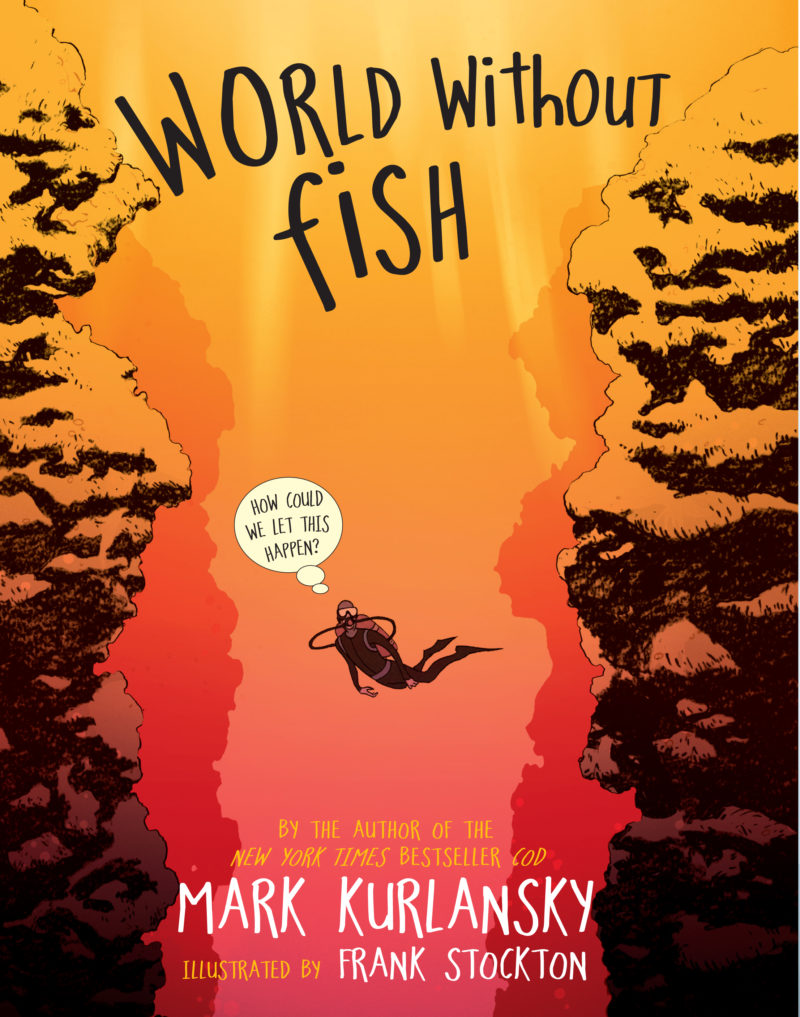
10 Fascinating Fish Facts
1. Scientists say that the number of large fish in the ocean has decreased by 90% over the past 50 years.
2. Mammals usually give birth to one to six babies. A bird will lay this many eggs. A fish will lay millions of eggs. For years, people assumed that this meant that fish have millions of babies. Only recently have scientists come to understand that a fish will usually have only one to six surviving babies, just like a mammal or a bird.
3. There are about 20,000 known species of fish, though there may be many more we don’t know about. Occasionally, a new fish is discovered, as was the case with the coelacanth, a fish thought to have died out with the dinosaurs that turned up on the deck of a South African trawler in 1938. There may be fish that are disappearing without our ever knowing that they existed.
4. The Orange Roughy is a red deepwater fish that gets its name from the orange color it turns after it dies (the fact that it’s named for appearance when dead shows that few people have ever seen it alive). When Orange Roughy became a fashionable international menu item in the 1970s, it was not understood that this species was very different from the other fish we commonly eat. Today, scientists estimate that the Orange Roughy lives for 150 years, which is at least five times as long as the lifespan of most of the fish we know. The problem is that it grows very slowly and isn’t capable of producing offspring until it is twenty years old, making it particularly susceptible to overfishing. Because we didn’t realize this in the 1970s, the Orange Roughy became one of the world’s most threatened fish within decades of being discovered.
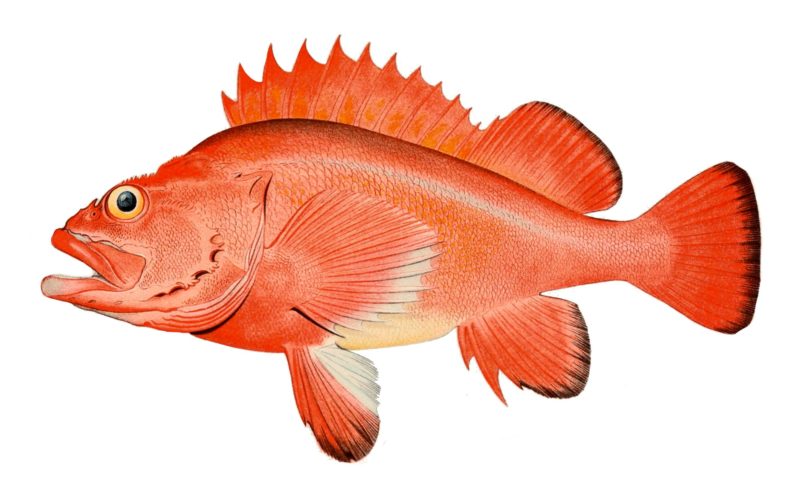
An Orange Roughy
5. The Great Pacific Garbage Patch is the largest known concentration of floating trash in the world. Located in the north central Pacific Ocean (the area between Japan and the United States), the Patch is alternately estimated to be from one-eighth to twice the size of the United States. The patch is fed by debris from both land and ships. Ocean currents carry the garbage to a point where it becomes a fairly stable patch. Sometimes there are recognizable objects in the patch, such as a chair or a satellite dish, but it is mostly made up of plastics because, unlike organic debris, plastics can’t be readily absorbed by natural processes. Consequently, they are highly poisonous to fish and birds that eat them.
6. There is no such thing as a true Chilean Sea Bass. The fish we know as the Chilean Sea Bass is actually a Patagonian Toothfish, which is not a bass at all, and, for that matter, not necessarily from Chile. Since a “Patagonian Toothfish” doesn’t sound very appetizing, the alternate name was created to market the fish internationally.
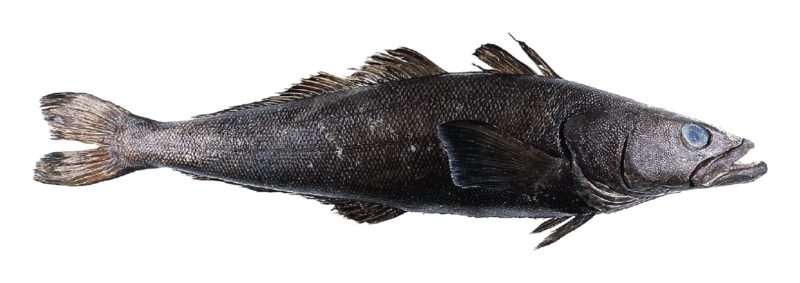
A Patagonian Toothfish
7. Today, fishing is still considered to be the most dangerous job in the world. Fishermen risk the highest percentage of death and injury—more than even firefighters or policemen.
8. Most farmed fish we eat today are fed wild fish that are caught by massive net draggers the size of factories. These net draggers indiscriminately scoop up wild fish by the thousands and grind them into fish meal, which is then pressed into fish pellets to feed the fish back on the farm.
9. Ninety percent of the fishing people do is within 200 miles of land, and most of the proven fishing grounds of the planet are now under the exclusive control of a single nation or group of nations. Some of the most destructive fishing is done by wealthy countries off the coasts of poor ones.
10. Because they live in thick, overcrowded pens and swim much less than their wild cousins, some species of farmed fish no longer resemble their wild ancestors. Farmed striped bass are much smaller than wild striped bass, and have an entirely different shape to their pointy heads and short bodies. What’s more, since a fish pen lacks predators and is largely protected from storms and temperature changes, a farmed fish would probably not know how to survive in the wild. If a farmed fish mated with a wild fish, their offspring might also lack these survival skills. Consequently, even just a few escaped farm fish accidentally released into the wild could menace the survival of an entire wild population.
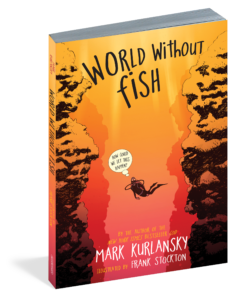 About the Book
About the Book
Announcing the paperback edition of World Without Fish, the uniquely illustrated narrative nonfiction account—for kids—of what is happening to the world’s oceans and what they can do about it. Written by Mark Kurlansky, the bestselling author of Cod, Salt, The Big Oyster, and many other books, World Without Fish has been praised as “urgent” (Publishers Weekly) and “a wonderfully fast-paced and engaging primer on the key questions surrounding fish and the sea” (Paul Greenberg, author of Four Fish).?It has also been included in the New York State Expeditionary Learning English Language Arts Curriculum.
Written by a master storyteller, World Without Fish connects all the dots—biology, economics, evolution, politics, climate, history, culture, food, and nutrition—in a way that kids can really understand. It describes how the fish we most commonly eat, including tuna, salmon, cod, swordfish—even anchovies— could disappear within fifty years, and the domino effect it would have: the oceans teeming with jellyfish and turning pinkish orange from algal blooms, the seabirds disappearing, then reptiles, then mammals. It describes the back-and-forth dynamic of fishermen, who are the original environmentalists, and scientists, who not that long ago considered fish an endless resource. It explains why fish farming is not the answer—and why sustainable fishing is, and how to help return the oceans to their natural ecological balance.
Interwoven with the book is a twelve-page full-color graphic novel. Each beautifully illustrated chapter opener links to the next to form a larger fictional story that perfectly complements the text.
Buy the Book
Indiebound | B&N | Amazon | Workman




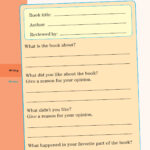
9 Comments
Bruce White
April 15, 2011 at 1:16 amVery nice post. I just stumbled upon your weblog and wished to say that I’ve truly enjoyed surfing around your blog posts. After all I will be subscribing to your rss feed and I hope you write again very soon!
yiannis
April 22, 2011 at 1:21 amIm very completely satisfied to listen to this. That is really nice :).
World Without Fish (giveaway closed) « Mommy's Memorandum
May 18, 2011 at 12:20 pm[…] I recommend this book for it’s information, illustrations and fascination. Learn more with 10 Fascinating Facts from World Without Fish and see if you don’t agree, its good […]
Imagine a World Without Fish (Closed) « Mommy's Memorandum
May 29, 2011 at 10:38 pm[…] I recommend this book for it’s information, illustrations and fascination. Learn more with 10 Fascinating Facts from World Without Fish and see if you don’t agree, its good reading! ThreeMommy’s Memorandum Readers […]
Judson Kamakea
July 23, 2011 at 3:46 pmHowdy just wanted to give you a brief heads up and let you know a few of the pictures aren’t loading correctly. I’m not sure why but I think its a linking issue. I’ve tried it in two different web browsers and both show the same results.
Laxman
April 5, 2012 at 9:05 amya i am agree with you thats digestable
sharad dhandiya
April 5, 2012 at 9:25 amwhat a writer..!!jsut too good
Terry Kern
April 9, 2012 at 8:45 pmFantastic web site. Lots of helpful info here. I’m sending it to some friends ans additionally sharing in delicious. And naturally, thank you in your effort!
Dinorah Zervos
July 19, 2012 at 7:49 pmHey, you used to write great, but the last few posts have been kinda boring… I miss your tremendous writings. Past few posts are just slightly out of track! come on!